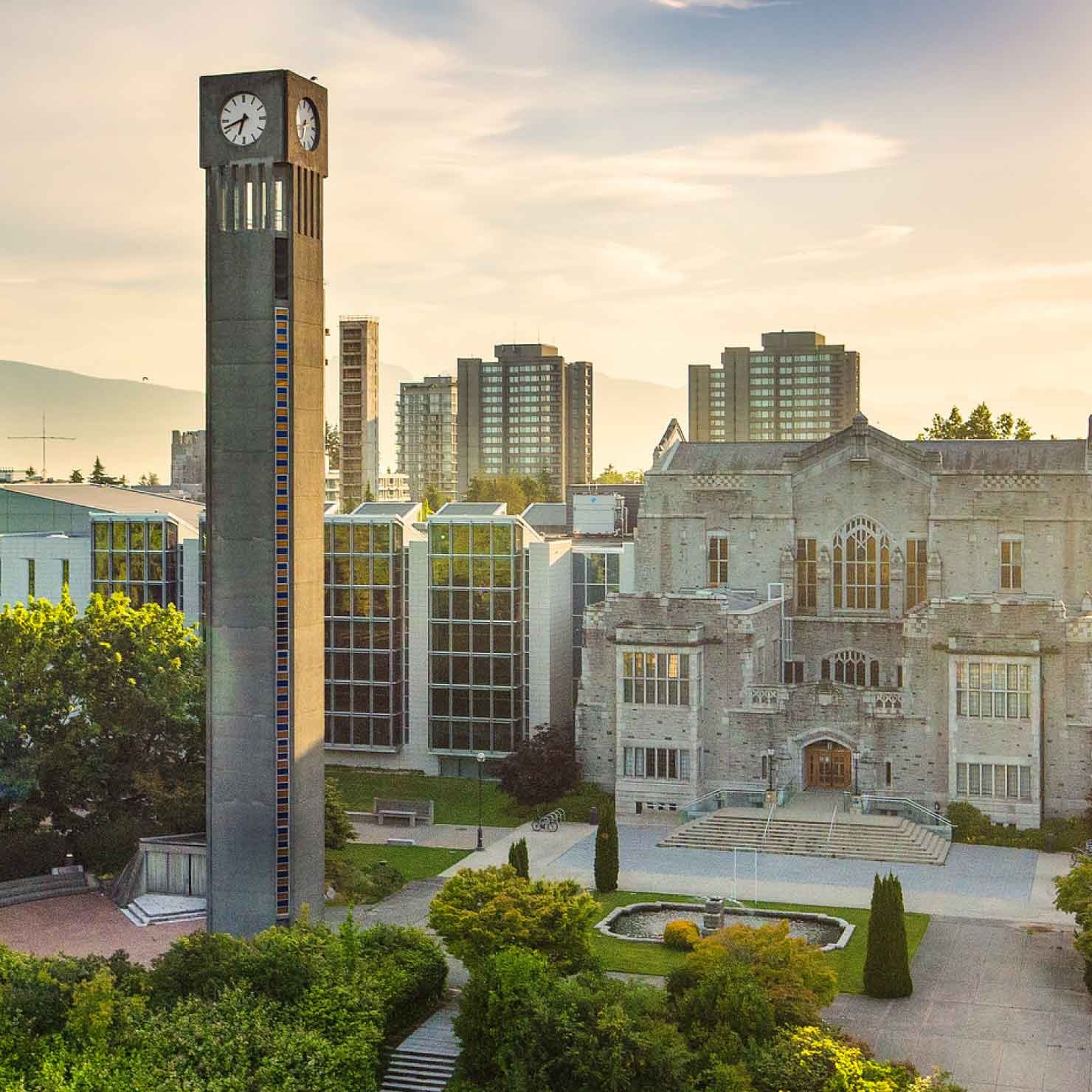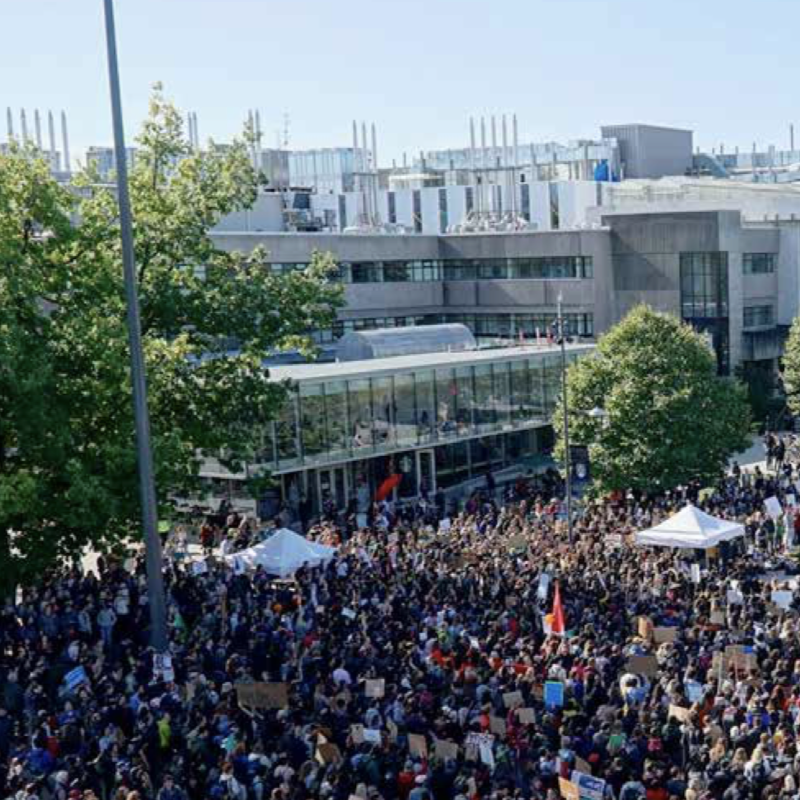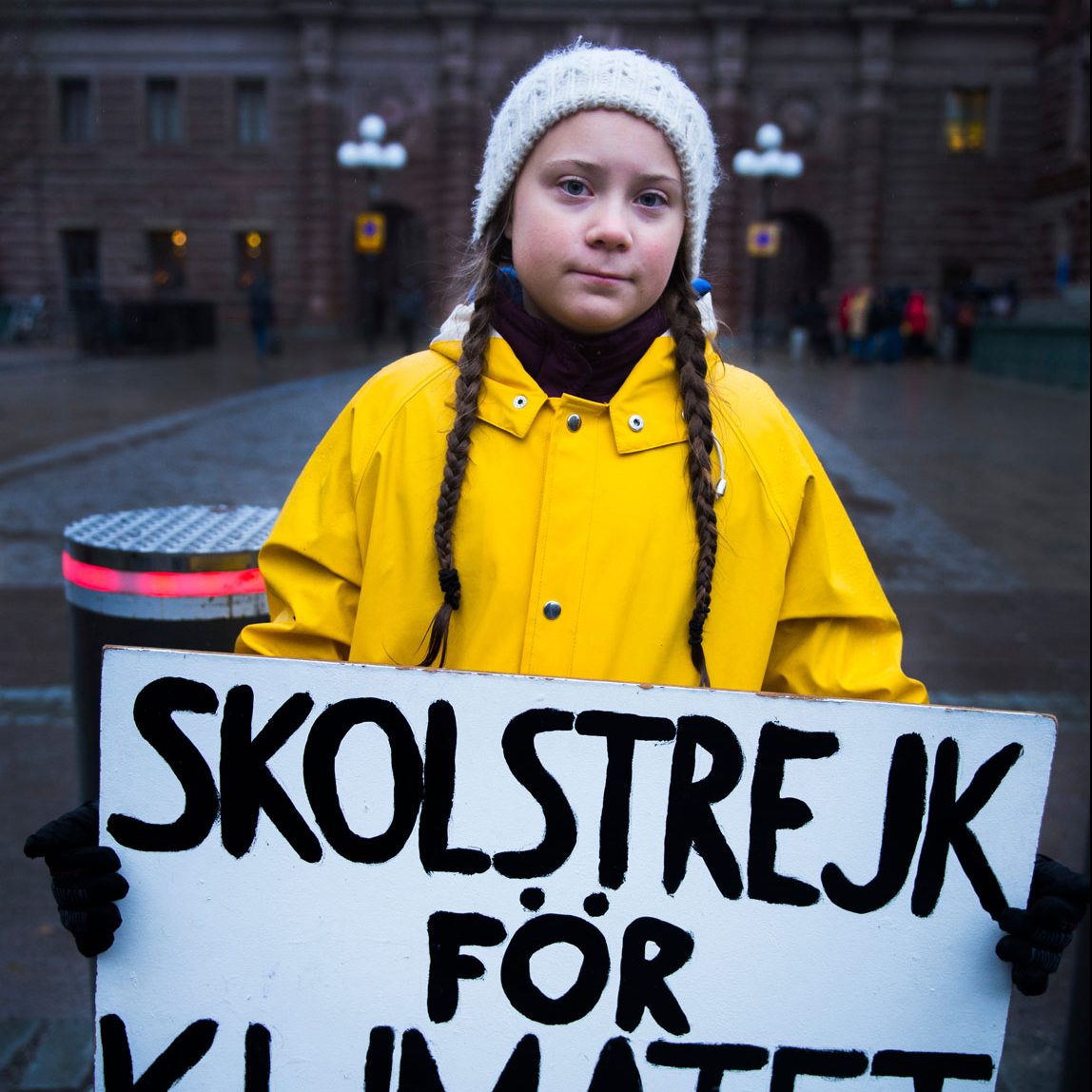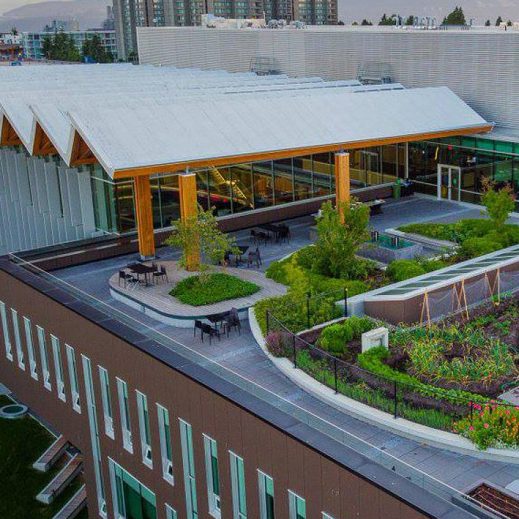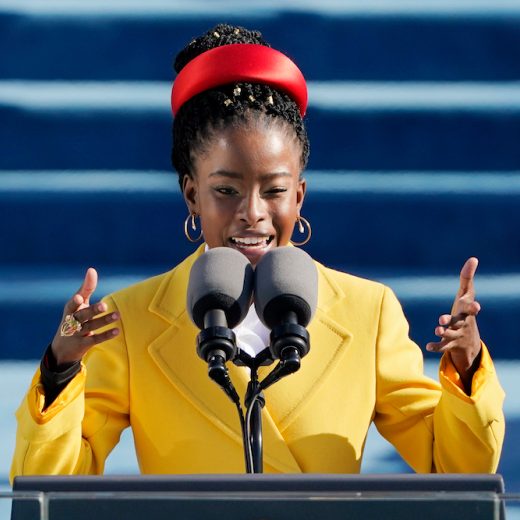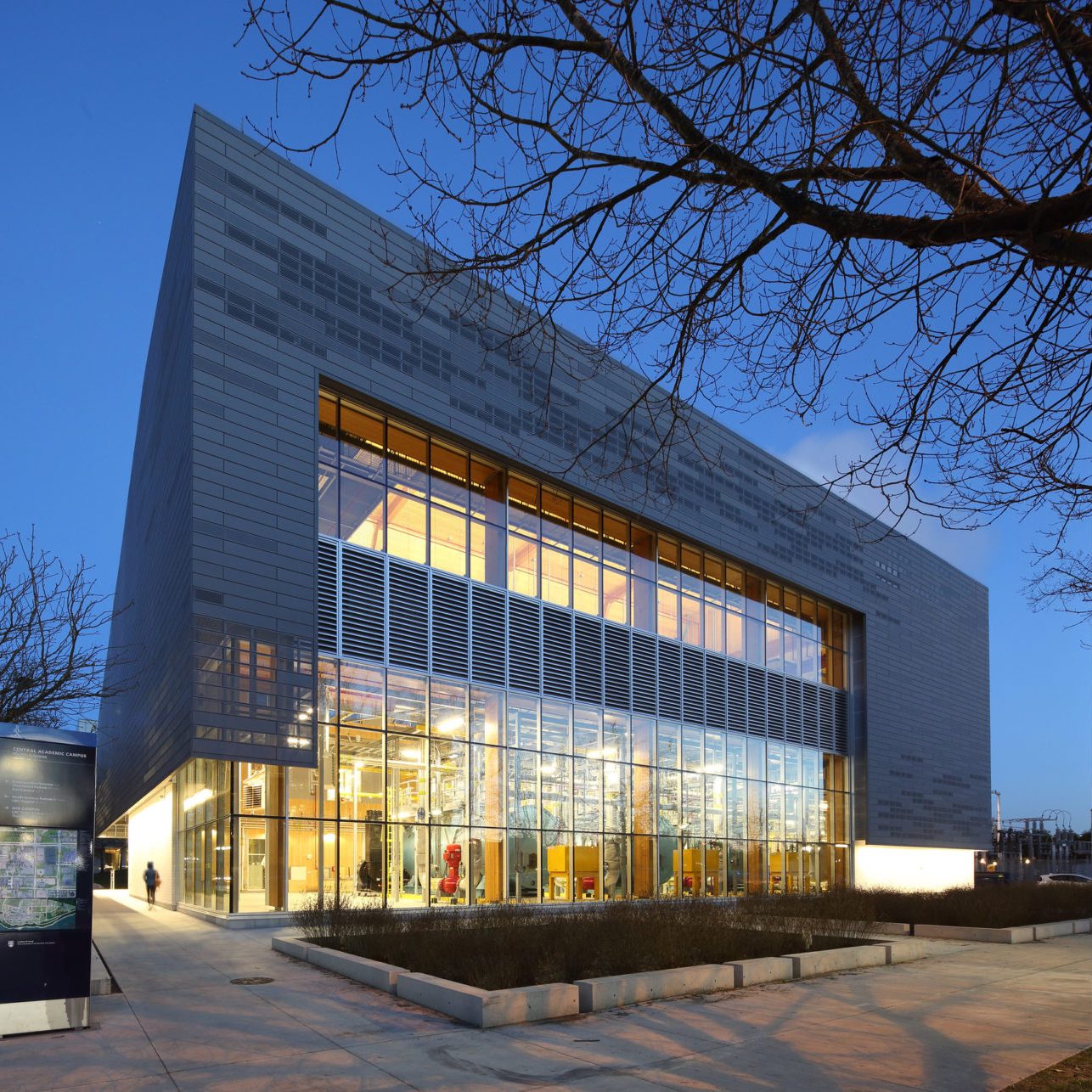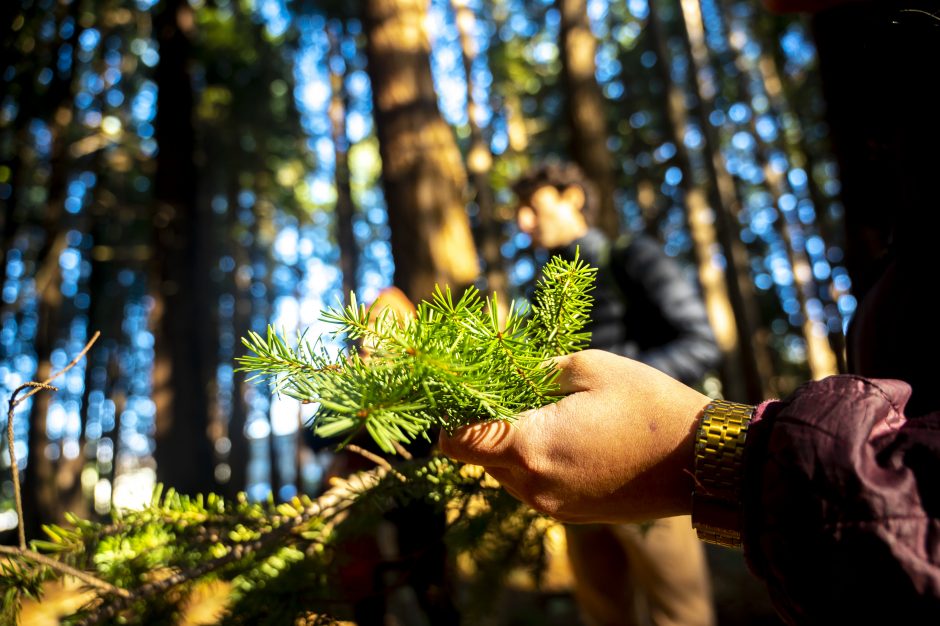
UBC understands that the actions we take today will affect human and environmental wellbeing for generations to come.
The stories below provide a window into the broad range of climate emergency-related activities underway by UBC academic units, operational departments, community initiatives, and student groups. UBC invites you to explore what’s happening, and join us in this vital work.
Featured Stories
Climate Emergency Fund Recipients Share Back

Sustainability Ambassadors Program
Join us in this interview with Jack Suchodolski and Kshamta Hunter to learn more about the Sustainability Ambassador’s Program, how the Climate Emergency Fund (CEF) has helped the program grow, and hear advice from Jack on getting involved in sustainability leadership.

Climate Justice UBC
Join us in this Q and A with Michelle Xie and Yasmina Seifeddine from CJUBC, as they discuss CJUBC’s demands for UBC to follow up on their fossil fuel divestment commitments, how the Climate Emergency Fund (CEF) has supported CJUBC’s work and values, and the deeper message behind the recent release of the CJUBC CEF Grant Report.
All Stories
Universities Must Do More to Address the Climate Emergency
Apr 26, 2021
The energy youth have shown in putting climate change on the political agenda and global protests in support of social justice this past year remind us that this generation has a vision for a post-pandemic world that is more sustainable and equitable for everyone.
At the University of British Columbia, a groundswell of student climate activism in recent years prompted the university to join organizations around the world in declaring a global climate emergency and committing to full divestment of investments from the fossil fuel industry.
However, more urgent progress is now needed, as the university mobilizes its institutional education, research and innovation capacity in continuing pursuit of climate solutions.
UBC completes initial transitioning of funds through the responsible investing strategy
Apr 12, 2021
As part of UBC’s commitment to a low-carbon, sustainable future and divesting the endowment, the university is pleased to share that $34M of endowment funds have been transitioned to fossil-fuel-free investments.
In late 2019, the university directed UBC Investment Management Trust Inc. (UBC IMANT) to develop and adopt an investment approach that builds on existing responsible investing practices, further addresses climate risk, and helps to drive positive social change.
UBC and UBC IMANT will continue to demonstrate leadership among universities and endowments as this responsible investing journey continues. Progress planned for 2021 includes divesting further funds to fossil-fuel-free funds with lower emissions, establishing an active ownership policy, and incorporating climate risk analysis into an asset mix study.
Student activism and divestment at UBC
Apr 10, 2021
Student activism, including on divestment on fossil fuels, is an important part of UBC's climate emergency story. Climate Justice UBC, a student group, prepared and produced this video to tell the story of UBC's fossil fuel divestment from their perspective.
One of the priority areas identified in the resulting Climate Emergency Task Force Report is to, "Demonstrate Institutional Leadership on Climate Justice", and the report makes a number of recommendations on divestment. This report is now being implemented under the mandate of the UBC Board of Governors Sustainability & Climate Action Committee , who consider matters relating to sustainability, climate action, and responsible investment at UBC.
Greta Thunberg receives honorary degree from UBC
Mar 31, 2021
B.C. Provincial Health Officer Dr. Bonnie Henry and internationally renowned climate activist Greta Thunberg will receive honorary degrees from UBC this spring.
Thunberg, 18, has gained international recognition for challenging world leaders to take immediate, science-based action against climate change, and for sparking climate-change activism in many parts of the world.
A three-time Nobel Peace Prize nominee, she has given speeches at the World Economic Forum in Davos, Switzerland; at the European Parliament; in front of the legislatures of Italy, France, the United Kingdom and the United States; at the 2019 UN Youth Climate Summit in New York, to which she famously traveled on an emissions‐free yacht; and the 2019 UN Climate Change Conference in Madrid.
Climate Action Plan 2030
Mar 26, 2021
In December 2019, UBC declared a climate emergency. As a result, the university is developing an ambitious Climate Action Plan (CAP2030) aimed at implementing strategies that will result in emissions reductions from UBC’s core operations by 2030 through clean energy solutions and energy-efficient technologies.
Now we’re turning to you, members of the UBC community, to share your valuable insights around what we can all do to help meet our goals. Come to one of our virtual events to learn more about CAP2030 and fill out a survey to share your perspective!
All survey participants will be entered into a draw to win a $100 gift card.
UBC Investment Management Trust Inc. commits $110M towards a more sustainable global economy
Mar 17, 2021
UBC Investment Management Trust Inc. (UBC IMANT) is pleased to report it has committed $110 million to be managed by Impax Asset Management (Impax), a specialist asset manager which invests in opportunities arising from the transition to a more sustainable global economy.
Reinforcing UBC’s commitment to address the global climate emergency, UBC IMANT expects its investment managers to consider ESG factors in all of their decision‐making – and is evaluating and holding fund managers accountable to this performance.
Responsible Investing progress planned for 2021 includes transferring additional funds to lower emission and fossil fuel free funds, establishing an active ownership policy, and incorporating climate risk analysis into portfolio analytics and asset mix study.
Linda Nowlan: “Just Is” ≠ Justice, especially when it comes to climate
Mar 02, 2021
Who didn’t have a shiver running down their spine listening to U.S. Youth Inauguration poet Amanda Gorman’s poem, “The Hill We Climb”? I know I did. In part, because I know that when it comes to climate change, we’re a long way off from justice.
The notion of climate justice confronts the fact that marginalized people the world over suffer from environmental damage they had no part in creating. There’s injustice in the form of personal responsibility for climate change. The richest one percent produce more than double the carbon emissions of the poorest half of humanity.
In this Georgia Straight article, The UBC Sustainability Initiative's Senior Director, Linda Nowlan, described the inspiration behind a new series of free Climate Justice public webinars beginning March 5. Read more.
Canada’s environment minister names expert group on net-zero emissions
Feb 26, 2021
The federal environment minister has named a group of experts who will advise him on the best way Canada can get its carbon pollution to net zero by 2050.
Environment and Climate Change Minister Jonathan Wilkinson announced 14 members of a new Net-Zero Advisory Body on Thursday, fulfilling a Liberal Party pledge to appoint a group of independent “scientists, economists, and experts” to guide Canada towards achieving its emissions reductions targets.
The group's members represent a range of expertise. They include Assembly of First Nations Yukon Regional Chief Kluane Adamek, climate scientist and University of British Columbia professor Simon Donner, and Kim Thomassin, executive vice-president of Canada’s second-largest pension fund, Caisse de dépôt et placement du Québec. Read more.
Embodied carbon pilot helps building industry address climate change
Jan 26, 2021
Greenhouse gas (GHG) emissions from the built environment are a significant contributor to climate change. As policies to reduce operational energy consumption and related GHG emissions from buildings start to take effect, the embodied emissions associated with building material choices are becoming proportionally more significant.
But in order to reduce embodied carbon in future buildings, policy-makers must first understand the materials-related emissions of current buildings. To meet this need, the UBC Sustainability Initiative’s Urban Innovation Research group is conducting a multi-year pilot focused on improving the practice of life cycle assessments (LCAs) used to estimate the embodied carbon emissions of buildings throughout their life cycle. Read more.
What is UBC currently doing to reduce its greenhouse gas emissions?
Feb 21, 2020

